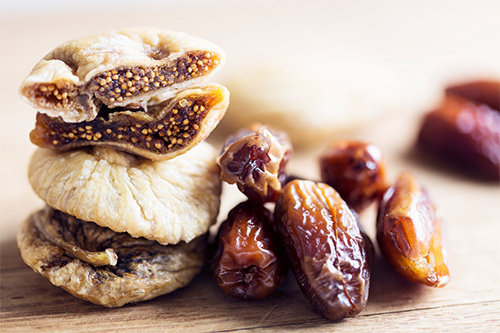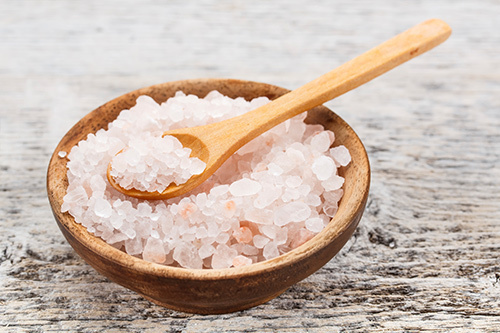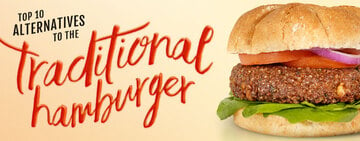Looking for a sweet alternative to molasses in your commercial kitchen? Whether you've run out of this dark, thick syrup or are looking to try something new, there are several substitutes that can add depth and richness to your recipes. From honey and maple syrup to brown sugar and dark corn syrup, there are plenty of options to choose from depending on the flavor profile you're aiming for. Shop All Molasses Click below to check out the different molasses substitutes: 1. Honey 2. Maple Syrup 3. Dark Corn Syrup 4. Brown Sugar 5. Sorghum 6. Golden Syrup 7. Black Treacle 8. Mixtures What Can You Substitute for Molasses? Molasses, a dark, thick syrup, is a byproduct of the sugar-making process. With its rich burnt-caramel flavor, molasses is commonly used in baking and cooking to add depth and sweetness to dishes. With its distinct taste and versatility, molasses is a popular ingredient in recipes ranging from gingerbread cookies to barbecue sauce. But what do you do if you don’t have this ingredient on hand? We’ve created a list of the best substitutes for molasses in baking and cooking: 1. Honey Honey is a versatile and flavorful sweetener that can be used as a substitute for molasses in certain applications. When looking for a molasses substitute, honey can be a great alternative due to its unique taste and sticky texture. Honey is known for its distinct floral and slightly fruity flavor profile, which can add depth and complexity to dishes where molasses is traditionally used. Its natural sweetness can help balance out the flavors in recipes, making it a suitable replacement in baked goods, marinades, sauces, and glazes. When substituting honey for molasses in recipes, keep in mind that honey is sweeter than molasses, so you may need to adjust the other sweeteners to achieve the desired final result. It is also important to consider the viscosity of honey, as it is thinner than molasses. To mimic the thickness of molasses, you can try reducing the amount of liquid in the recipe or combining honey with a thicker ingredient such as corn syrup or maple syrup. You may also want to try using darker types of honey, like manuka honey, buckwheat honey, or wildflower honey, to match the coloring of molasses. Replacement Ratio - 1:1 Honey to Molasses Molasses vs Honey - Honey is lighter and sweeter than molasses. It also has a thinner consistency. Molasses is darker in color than honey and has a richer and smokier flavor. 2. Maple Syrup Maple syrup is derived from the sap of sugar maple trees and has a distinct sweet and rich flavor profile that adds depth to dishes, making it a suitable molasses alternative. While not as robust and earthy as molasses, maple syrup offers a sweet and slightly smoky taste that can add complexity to dishes, similar to the depth of flavor that molasses provides. The flavor profile also changes with the grade of maple syrup. Look for dark or very dark maple syrup when substituting molasses. Maple syrup is sweeter than molasses. Typically, you can use 3/4 cup of maple syrup for every 1 cup of molasses, but you may need to reduce other sweeteners in the recipe to balance the sweetness. Maple syrup is also thinner and more liquid than molasses, which can affect the texture of the final dish. When using maple syrup as a substitute for molasses, consider reducing other liquid ingredients in the recipe to maintain the desired consistency. Replacement Ratio - 3:4 Maple Syrup to Molasses Molasses vs Maple Syrup - Maple syrup has a similar smoky flavor to molasses but is sweeter and thinner in consistency. 3. Dark Corn Syrup Dark corn syrup can serve as a suitable substitute for molasses in various commercial applications. Made from cornstarch, this thick, rich syrup has a deep amber color and a robust flavor profile that closely resembles that of molasses. Dark corn syrup also offers a similar viscosity and moisture content, making it an excellent alternative in recipes that call for molasses. One key advantage of using dark corn syrup as a molasses substitute is its widespread availability and cost-effectiveness, making it easy to source in bulk quantities. In a recipe, it is important to consider the differences in sweetness levels when substituting dark corn syrup for molasses. While dark corn syrup has that bold flavor, it is slightly sweeter than molasses. Adjust the sweetness level of your recipe as you bake or cook by balancing it with the other ingredients. Additionally, while dark corn syrup can mimic the color and flavor of molasses, it may not provide the same depth and complexity, so experimentation and taste testing along the way may be necessary to achieve the desired results. Replacement Ratio - 1:1 Dark Corn Syrup to Molasses Dark Corn Syrup vs Molasses - Molasses and dark corn syrup are very similar in color, thickness, and flavor, with corn syrup being slightly sweeter than molasses. 4. Brown Sugar Brown sugar is made by adding molasses to refined white sugar, giving it a moist texture and distinctive caramel-like taste that can mimic the richness of molasses in recipes. One of the key advantages of using brown sugar as a molasses substitute is its similar flavor profile. Brown sugar is available in both light and dark varieties, with dark brown sugar containing a higher molasses content and a more intense flavor. Depending on the recipe being prepared, chefs can choose between light and dark brown sugar to tailor the sweetness and depth of flavor in their dishes. Brown sugar can be used in a 1:1 ratio as a substitute for molasses in most recipes. However, it is important to keep in mind that brown sugar is sweeter than molasses and lacks the liquid content of molasses. If the missing liquid will impact your recipe greatly, try scaling back the brown sugar to 3/4 of a cup and add 1 to 4 tablespoons of water to the mixture. Whether you are baking, cooking, or creating sauces, brown sugar can be a convenient and effective alternative to molasses. Replacement Ratio - 1:1 Brown Sugar to Molasses or 3:4 Brown Sugar to Molasses + 1 - 4 Tablespoons Water Molasses vs Brown Sugar - Brown sugar is made with molasses so it features a similar flavor profile and taste. Because of the refined white sugar, brown sugar is sweeter than molasses and drier in texture, since it is not in liquid form like molasses. 5. Sorghum Sorghum, a versatile and nutritious grain, is a popular molasses substitute that offers a unique flavor profile. This gluten-free grain is known for its sweet taste and deep amber color, making it an ideal alternative in various culinary applications. Sorghum syrup, derived from the juice of sorghum cane, has a rich, robust flavor with hints of malt and molasses, so much so that it is often called sorghum molasses. Its slightly earthy undertones make it a suitable replacement for traditional molasses in recipes. Sorghum syrup can be used in a variety of sweet and savory dishes, including baked goods, marinades, glazes, and sauces. Its versatility makes it a convenient option for chefs and bakers looking to experiment with different flavors in their recipes. Although sorghum syrup is slightly thinner than molasses, most recipes will call for a 1:1 substitution. Sorghum has a touch more sweetness than molasses, but the similar flavor profiles allow for a rather seamless replacement. Replacement Ratio - 1:1 Sorghum Syrup to Molasses Sorghum Syrup vs Molasses - Sorghum syrup shares many qualities with molasses, being similar in color, texture, and flavor. Although sorghum syrup is slightly thinner and sweeter than molasses, it can be used as a direct replacement since they both have an earthy and malty flavor. 6. Golden Syrup Golden syrup is a popular sweetener in the United Kingdom that can serve as an excellent substitute for molasses. Made from sugar cane or sugar beet juice, golden syrup is known for its rich, golden color and distinct caramel-like flavor profile. This syrup is commonly used in British baking, confectionery, and beverage production, offering a unique sweetness and depth of flavor to a wide range of products. Golden syrup has a lighter and milder taste compared to molasses. While molasses has a bold, bittersweet flavor, golden syrup provides a more delicate sweetness with subtle caramel notes. This difference in flavor profile can be particularly beneficial in recipes where a lighter touch of sweetness is desired. In addition to its flavor profile, golden syrup also offers a similar level of viscosity to molasses, making it a suitable replacement in recipes that require a thick, sticky consistency. Because of their similarities, you can substitute 1 cup of molasses for 1 cup of golden syrup. Replacement Ratio - 1:1 Golden Syrup to Molasses Golden Syrup vs Molasses - While not as rich or robust as molasses, golden syrup can provide a similar depth of flavor in sweet and savory recipes. It has a similar caramel-like flavor profile and viscosity to molasses. 7. Black Treacle Also known as dark treacle in some regions, black treacle is a byproduct of sugar refining and has a distinct dark color and warm taste. This UK ingredient is a popular molasses substitute that offers a rich and complex flavor profile. One key characteristic of black treacle is its deep, bittersweet flavor, which adds a unique depth to dishes. This intense taste, thick viscosity, and dark hue can also contribute to the rich color and texture of various recipes. In commercial food production, black treacle is often used in traditional British recipes like gingerbread, fruitcake, and puddings. Its ability to add complexity to these desserts makes it a sought-after ingredient in bakeries and pastry shops. Additionally, black treacle can be incorporated into savory dishes such as barbecue sauces, meat marinades, and savory pies to impart a bold, umami-rich flavor. When substituting black treacle for molasses in recipes, it is important to consider the more pronounced flavor profile and adjust the quantity accordingly to achieve the desired taste. While black treacle can be a suitable alternative for molasses in many dishes, its stronger taste may require some added sweeteners for balance. Replacement Ratio - 1:1 Black treacle to Molasses Black Treacle vs Molasses - Black treacle, also known as British treacle, shares similarities with molasses in terms of its dark color and rich flavor profile. However, black treacle is typically thicker and has a slightly stronger and bitter taste compared to molasses. 8. Mixtures Most molasses substitutes require minor adjustments to reduce the impact on the recipe, whether that be because of their sweetness or viscosity. The best molasses substitutes include honey, maple syrup, and brown sugar, but often a combination of two ingredients will give you a closer substitution than just using one ingredient. Here are some of the mixtures you can try to swap out molasses in your recipes and achieve similar results. 1/2 cup honey + 1/2 cup maple syrup 1/2 cup honey + 1/2 cup brown sugar 1/2 cup dark corn syrup + 1/2 cup maple syrup 1/2 cup golden syrup + 1/2 cup black treacle 1/4 cup brown sugar + 1/4 cup simple syrup When it comes to finding a suitable substitute for molasses in your commercial kitchen, there are several options to consider. Each alternative can bring its own unique flavor profile and sweetness level to your dishes. Experiment with different substitutes to discover which one works best for your specific recipe and enjoy the flexibility and creativity that comes with exploring new ingredients.





